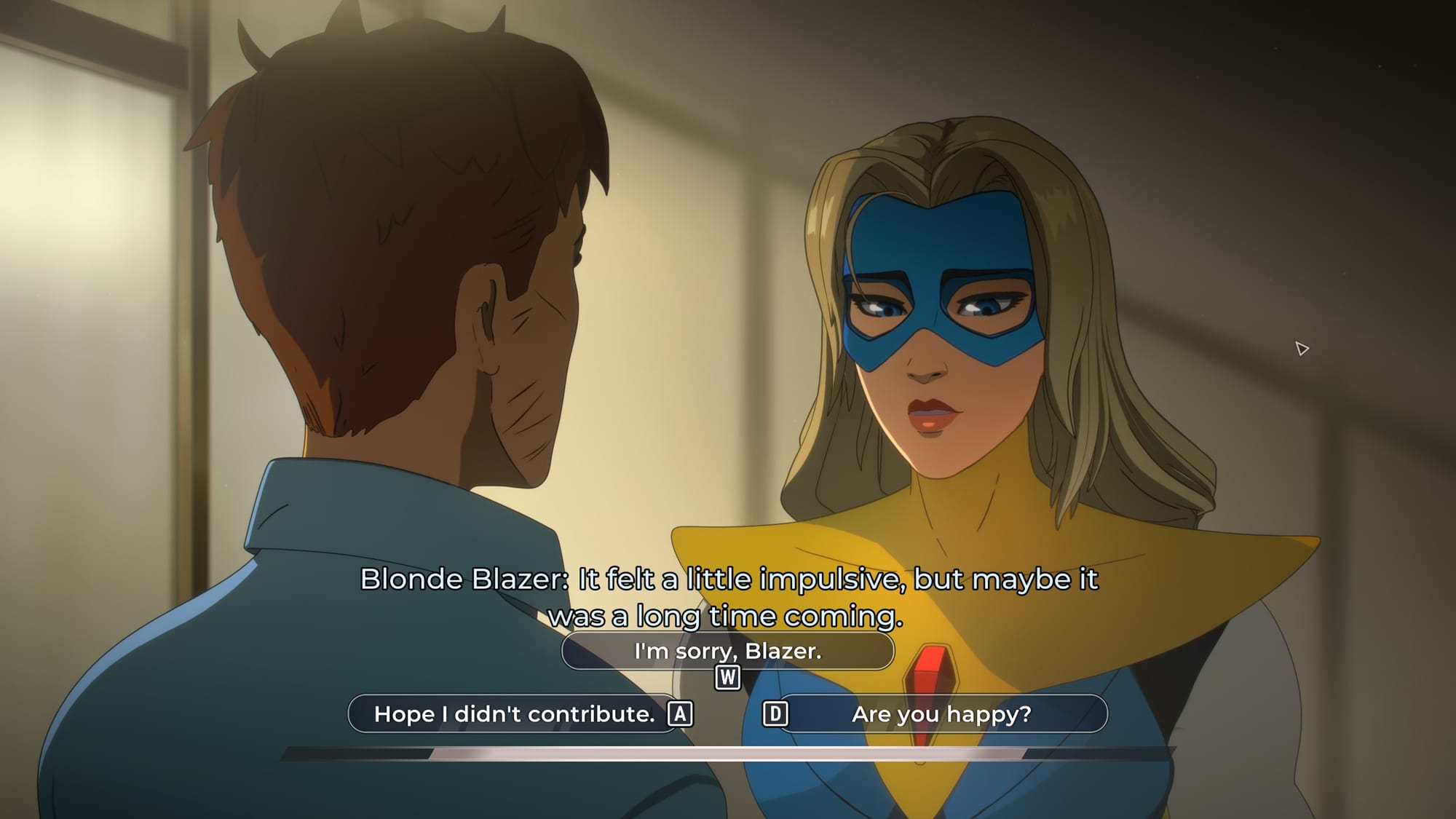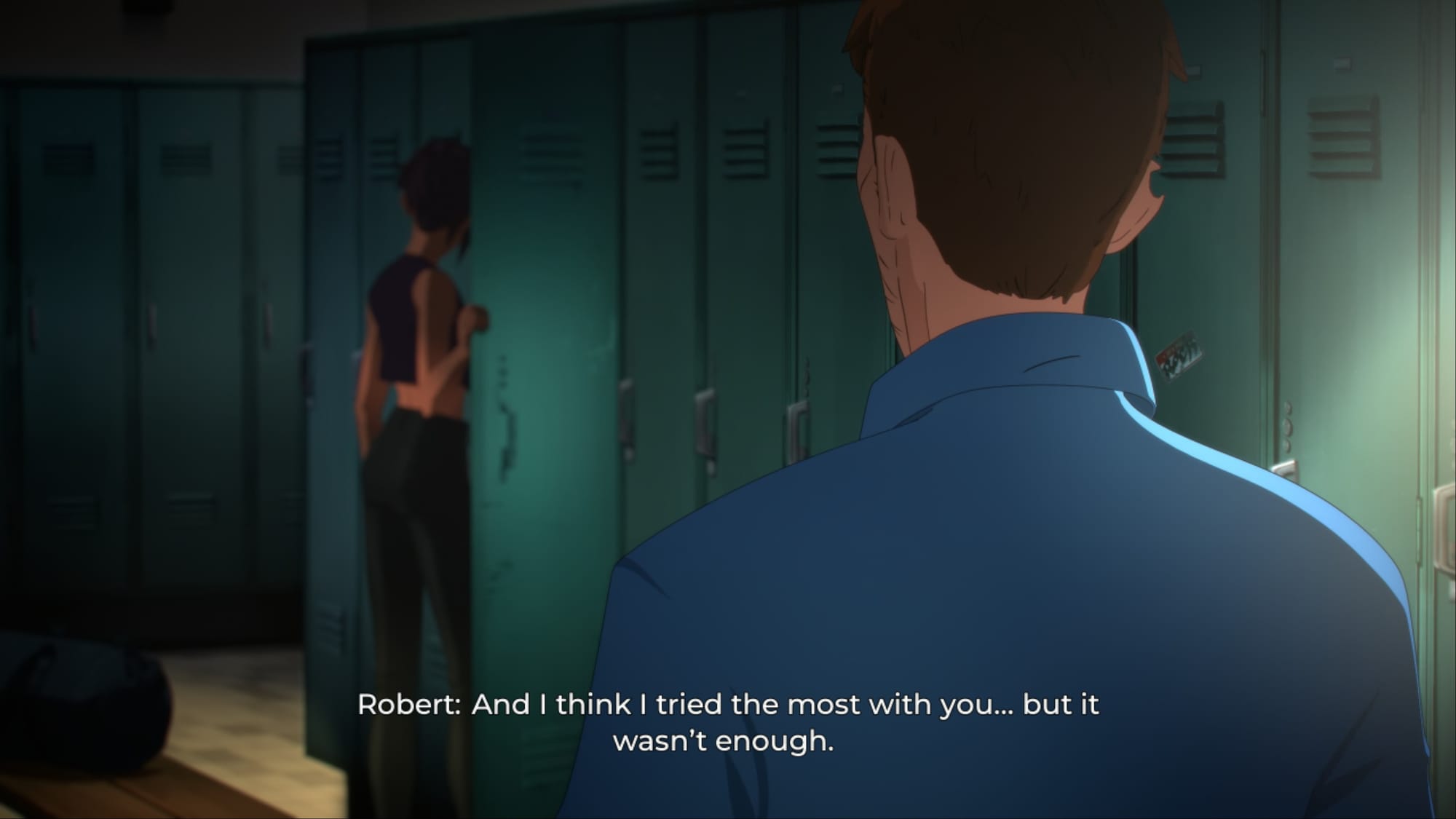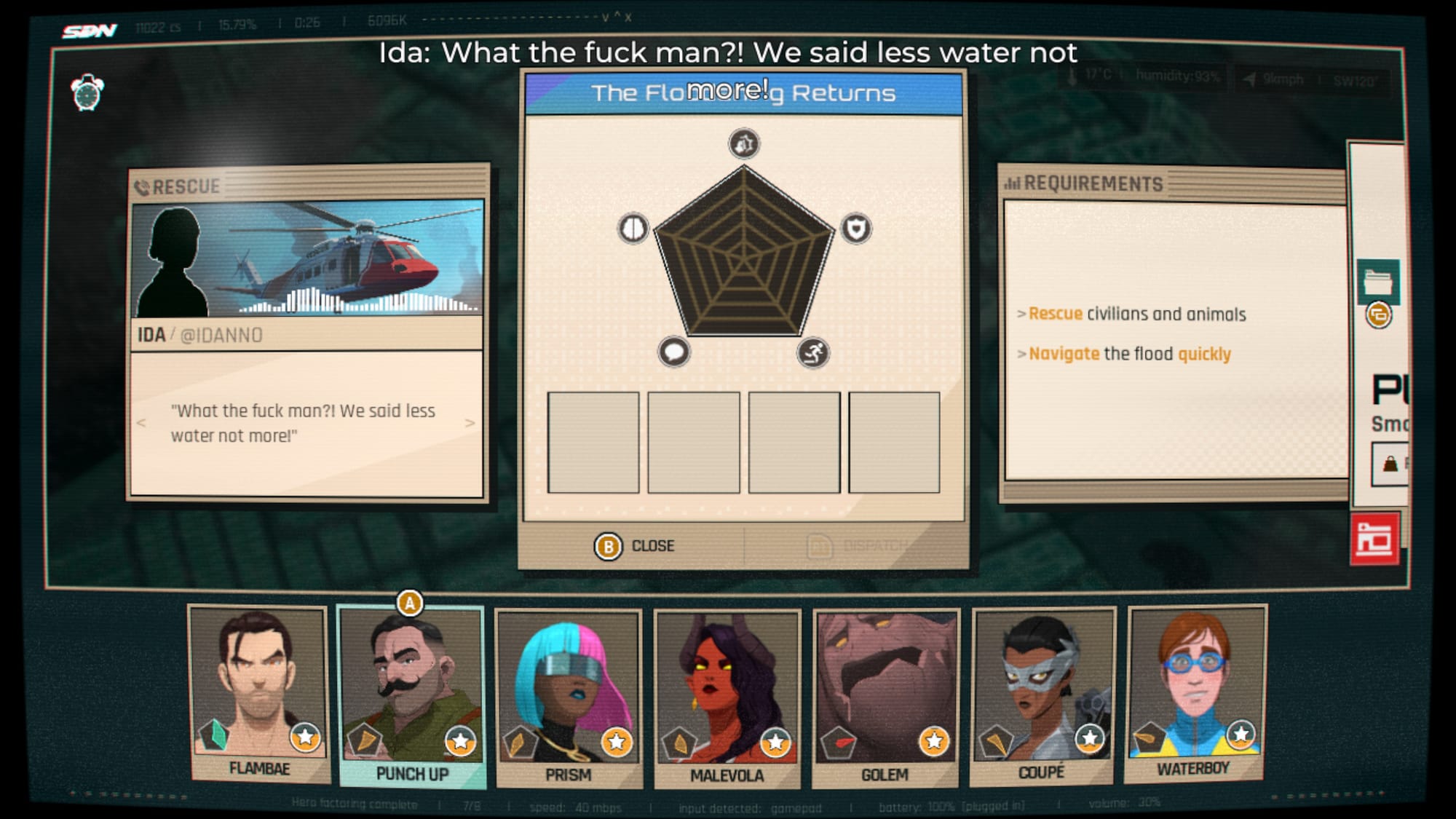L.A. has been protected by superheroes for generations, but one in particular stands out: Mecha Man. Three generations of pilots - each named Robert Robertson for some ungodly reason - have worn the suit to battle villains and save lives. The second Mecha Man was killed by a masked man calling himself Shoroud, so his son takes up the mantle, planning his revenge. That doesn’t go too well, and Robert Robertson the Third is left with no suit, no money, and several broken bones. When the spectacular Blonde Blazer approaches him with an opportunity, mentoring and dispatching a team of heroes around the city in exchange for a new Mecha Man suit, Robert dons a new suit: an SDN uniform. He’s saddled with the worst the Superhero Dispatch Network has to offer, however, a gang of reformed villains in the Phoenix Program: the Z-Team. During his tenure at SDN, Robert will get to know these losers future heroes, show them how to be good people, and become the hero he was always meant to be.
I’ve been covering Dispatch as it’s released two episodes at a time for the past few weeks. With the release of episodes 7 and 8, we now have the full first season. No more theorizing on what will happen next or waiting for the next batch of episodes. That’s part of the fun of an episodic release, even though it’s much more ephemeral than the game itself. So, for this review, I played the game twice: once each week as it was released, and then again with each episode back to back. It revealed a few interesting things about the game, how its choice based narrative plays out, and the game as a whole instead of several pieces.
Dispatch plays out like a season of television, just like TellTale classics post-The Walking Dead. You make dialogue choices which will affect Robert’s relationship with the other characters and alter the story. There are also optional Quick Time Events, but failing them literally does not matter and you can and should turn them off in the options. No, the fun lies in watching the story play out and in how choices you made earlier come back to haunt, delight, and surprise you. You do generally have to temper your expectations with the choices, however, as a game of this budget and scope can’t really have every choice permanently alter the story in massive ways. This isn’t Slay the Princess or Scarlet Hollow; not everything you do will matter down the line and the story will follow the same general path every playthrough. Robert’s always going to lose the suit, have to cut a Z-Team member, and grow to love his work and his team. It’s closer to TV with a bit of interaction, and that has its own unique appeal that’s been missing from the gaming landscape for quite a while. Even with its flaws, Dispatch has that novelty and enjoyment going for it.
The narrative sections, which comprise the majority of the game, are all pre-rendered (no graphics options here aside from resolution), and for the most part they look amazing. There are some bits that look unfinished, like a few stiff animations and I think I saw a man who straight up had no face in Episode 8, but aside from that Dispatch is gorgeous, like actually playing a cartoon based on a comic book. The voice acting is, likewise, flawed but good. It takes a few episodes for some actors to settle into their roles, but once they do it’s smooth sailing for the most part. A few weird deliveries here and there. The SDN customers you talk to during dispatches can sound horrendous, but it’s generally good. AdHoc partnered with Critical Role for this game, so there’s a bunch of big stars here like Matt Mercer, Aaron Paul, and Laura Bailey, alongside lesser known voices such as Sean McLoughlin and Thot Squad.

The writing is a bit more of a complex issue. Moment to moment, it’s great. Characters talk like real, believable people and each scene flows pretty naturally, though the game has a tendency to undercut every emotional or dramatic moment with jokes, a bad habit from the Marvel movies this no doubt takes inspiration from. No, the problems really arise when you put all these scenes together for a story. Dispatch simply doesn’t flow very well. It’s first episode takes its time to set up Robert, some of the Z-Team, Blonde Blazer, Shroud, and several of the conflicts and themes you’ll be dealing with over the course of the game. However, most episodes also feel like they’re taking this setup approach until the ending just kinda happens at you. Basically the first half of the game is all about the love triangle between Robert, Invisigal, and Blonde Blazer, then you spend two episodes actually getting to know the ensemble cast before shit hits the fan in the final pair. It feels as if Dispatch was intended to be two episodes longer for a full 10 or that things were just planned out very poorly.
All the story beats are there to make for a good plot, but that story is always focused too much on one thing or another to really make those beats the best they can be. Take Invisigal’s character arc for example. She gets by far the most attention out of the entire Z-Team and needs the most mentoring from Robert. In my first playthrough, I tried to always be kind and give her the benefit of the doubt, breaking out the tough love when appropriate while giving her every possible chance to be better. For the entire game except for one scene in episode 7, she’s consistently crass, rude, and barely puts any effort into being a better person. I’ve already spoken at length in my impressions of each episode on how it feels like she’s trying her hardest to be the living embodyment sexual harassment, and how that makes a potential romance with her genuinely repulsive. I tried her romance on my second playthrough and she was still a creep the whole time; I actually found her even less likable. Once more, I feel the need to point out that absolutely no one would tolerate any of her BS if she was a man. However, all it took to get me to like her just a little bit was the aforementioned scene in episode 7 where she actually opens up, but by then it was really too late to do anything else with her character. The game really needed more scenes like that one, because when you have such limited time to tell a story you need to make every line of dialogue count, and Dispatch wastes way too many of them on (admittedly funny) jokes.

A lot of that character development could have been rearranged to occur during the titular dispatching gameplay segments, because there’s already some great banter here between characters who don’t interact all that often. Dispatching is exactly what it sounds like: problems arise across your small section of the city, and you have to choose which hero or heroes to send to solve it. Each hero has an array of stats, making them more suited to some tasks over others. For example, Flambae starts out very combat oriented, Prism is all about charisma, and Waterboy is… well, he’s bad at everything, but he’s trying his best. Heroes also have innate abilities that will further affect their performance, such as Punch Up’s inability to be injured or downed. After sending a hero, they’ll head over to the site and get started. Once the job’s done, you can see the results, shown as two grids overlaid on top of each other: one being the mission’s required stats, and the other being the heroes’ stats. A puck will bounce randomly around the needed stats area, and if it lands in an overlap of the two grids it’s a success, and the heroes involved will gain experience. When a hero levels up, you can then put one point into a stat on their grid, making them more effective. If the mission fails, you won’t gain any experience and any heroes involved may be injured. If a hero is injured twice in a shift, they’ll become downed and unable to be dispatched. Additionally, sometimes you’ll need to give advice to a hero in the field, this will determine a stat they’ll be tested on, so you need to read the prompts carefully and consider who’s doing what. Alternatively, if a hero is perfectly suited to a situation, they might already have the skills and just need a little push to guarantee success.
Later on in the game, you’ll run into missions where going over a certain number in a stat will automatically fail the job. I think these are very interesting conceptually, but end up being a bit more frustrating than they should be as oftentimes the stats you’re tested on will be way above that threshold. So there’s just an inbuilt chance of failure on these missions you can’t avoid or plan around.

Dispatching (there’s one or two sections in each episode), at its best, serves to connect the story and gameplay. If the team is fighting amongst themselves, they might sabotage each other when sent on missions together, while characters who are friends might perform better as a team. At the same time, you want everyone to level up, so you might need to send someone less than helpful on a job to make them more helpful in the future. It’s fun, though I don’t think it would stand on its own without the narrative sections to complement it, at least not without more tweaking and management sim-style stuff. If you’re playing with a gamepad, they also control somewhat poorly, I missed several dispatches because the game simply wouldn’t let me scroll over to the mission before it expired. Still, I’d rather have them than not, and they serve the game as a whole pretty well.
In parts, Dispatch should be an amazing game. The characters are fun, the story is intriguing, your choices can have noticeable effects on events, it looks great, sounds great, and the dispatching gameplay is fun. Putting it all together, though, it feels incredibly messy and almost scattershot. There’s not much that gels together in a satisfying way. Characters have super uneven amounts of screentime, the story barely matters until the end, some big choices have literally no impact, some visuals look unfinished, the sound effects lack any sort of impact when they need to, and the dispatching gameplay can feel like an afterthought or formality. Even having played it twice now I’m unsure if it’s actually great or actually terrible, so maybe the truth lies somewhere in the middle.
Dispatch
Good
Dispatch is a very uneven experience. It has polish in some places but severely lacks it in others. It has great characters but you don’t get to spend much time with the good ones. The dispatching segments can be fun but feel somewhat shallow. The game has sparks of absolute brilliance, though can use those sparks to start a dumpster fire. It’s worth playing and enjoyable for any fans of narrative focused games or superheroes, but might be memorable for the wrong reasons.
Pros
- Amazing visuals and animation
- Great characters
- Choices can feel like they matter
- Dispatching gameplay is fun and strategic
Cons
- Invisigal is still a creep
- Doesn’t focus on the ensemble cast or plot enough
- Can look and sound unfinished at times
- Playing with a gamepad can feel janky
This review is based on a retail PC copy provided by the publisher.





















